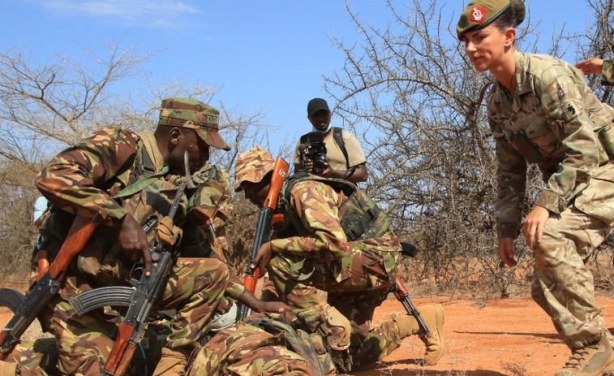-
Kenya: How British Soldiers Flout the Rules of Engagement in the Country
Nation, 26 October 2021
The British Ministry of Defence underscores a golden rule for all soldiers on active service: They must remember the law in every action. Read more »
-
Kenya: Last Moments of Woman Allegedly Killed By British Soldier in Nanyuki
Nation, 25 October 2021
Two friends who were with a woman allegedly killed by a British soldier recounted a guard reported a fight in one of the hotel rooms on the day she disappeared in 2012. Read more »
-
Kenya: Agnes Wanjiru Murder - Family Speaks Out
Nation, 25 October 2021
In the Majengo slums of Nanyuki town, the family of Agnes Wanjiru, whose body was found in a septic tank in 2012, is still seeking answers about her murder. Read more »
-
Kenya: UK Under Pressure to Probe Killing of Agnes Wanjiru By British Soldier
Nation, 24 October 2021
The British government is now under pressure to probe and prosecute a soldier who allegedly killed and dumped the body of a Kenyan woman in Nanyuki in 2012. Read more »
-
Kenya: UK Police Launches Murder Inquiry On Killing of Kenyan Woman By a British Soldier in Nanyuki
Capital FM, 24 October 2021
The Royal Military Police from the United Kingdom (UK) has launched a murder inquiry into a case where a British soldier is accused of murdering a 21-year-old woman nine years ago… Read more »
-
Kenya: Lakipia Residents Want British Army Training Exercises Stopped After Fire
Nation, 29 July 2021
The Lolldaiga community in Laikipia County wants the British military stopped from conducting trainings at Lolldaiga Hills, terming continued exercises as contemptuous to the… Read more »
How British Soldiers Flout Rules of Engagement in Kenya
Evidence has shown that the British Ministry of Defence has been violating human rights and flouting military pacts signed with various nations.
The revelation that a young woman was murdered and her body thrown in a septic tank by a British soldier in 2012 adds to the long list of atrocities allegedly committed by soldiers, particularly those attached to the British Army Training Unit Kenya (Batuk) in Samburu and Nanyuki.
The soldiers have in the past been accused of carelessly leaving unexploded ordinances in the unfenced fields of Samburu, killing and maiming herders and their livestock. They have also been accused of rape, murder, assault and environmental crimes.
Rights groups working around the areas where Batuk units train, have for years raised concerns about human rights violations.
The British government have twice been compelled to pay 1,300 people who were seriously injured or killed by exploding bombs. The payments was done in 2003 and 2004 after a British law firm, Leigh Day, negotiated the settlements.
While the rules of engagement have been similar to those in previous Defence Cooperation Agreements (DCAs), the rate of prosecution of UK soldiers in Kenya remains very low.
In the Wanjiku case, British High Commissioner Jane Marriott said the UK would cooperate with investigators, writes Stella Cherono for The Nation.

A British soldier (right) gives instructions during a joint training with Kenya Defence Forces at Archer’s Post in Samburu County on October 7, 2020 (file photo).


